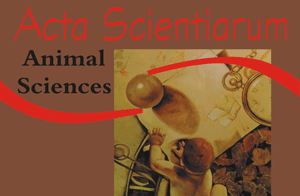ABSTRACT.
Reducing livestock negative environmental impacts get great interest in last years. So, present study was carried out to determine the effect of adding different levels of mixture of thyme and celery versus salinomycin on ruminal fermentation, gas production, dry, organic matter and fiber degradation. Four experimental treatments were used by in-vitro batch culture technique, as follow: 60% CFM, 40% clover hay (control), control diet + 2.5 gm thyme + 2.5 gm celery kg-1 DM (T1), control diet + 5 gm thyme + 5 gm celery kg-1 DM (T2), control diet + 10 gm thyme + 10 gm celery kg-1 DM (T3), control diet + 0.4 gm Salinomycin kg-1 DM (T4). Ruminal pH value was significantly increased (p < 0.05) with T4 compared with other treatments. While, the T4 recorded the lowest value (p < 0.05) for microbial protein, short chain fatty acids concentrations (SCFA), total gas production, dry matter and organic matter degradability (DMd and OMd) compared with other treatments. Fiber fraction degradability (NDFd and ADFd) appeared no significant variance (p > 0.05) between control and other treatments except for T1 that recorded the lowest value (p < 0.05). It is concluded that mixture of thyme plus celery could be alternate for ionophores in the ruminant diets to enhance ruminal fermentation, reducing gas production without any negative effect on nutrients degradability.
Keywords:
thyme; celery; ionophores; gas production; rumen fermentation; nutrients digestibility
